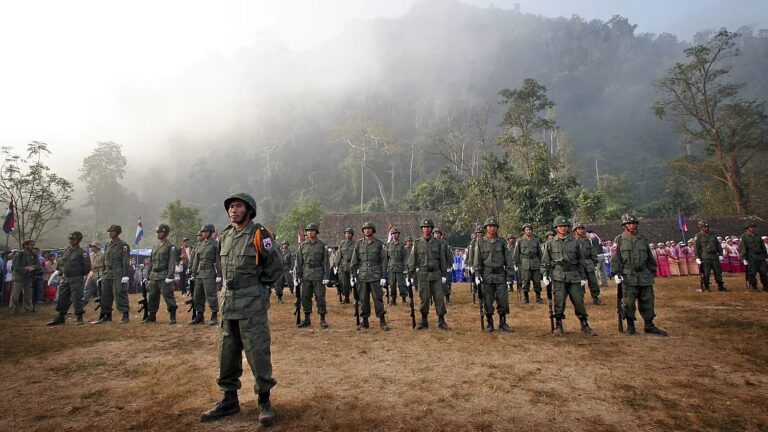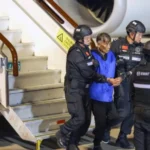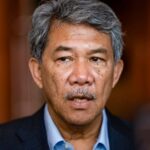
The KNA controls Shwe Kokko and some areas in Myawaddy, on the border with Thailand in the state of Kayin, also known as Karen state.
An ethnic militia in southeast Myanmar that has been sanctioned by the US for alleged involvement in human trafficking and online scams has denied the allegations.
The US Treasury Department announced sanctions on Monday against the Karen National Army (KNA) as well as its leader Colonel Saw Chit Thu and his sons, Saw Htoo Eh Moo and Saw Chit Chit.
They are accused of “facilitating cyber scams that harm US citizens, human trafficking, and cross-border smuggling,” a Treasury Department statement said.
“Cyber scam operations, such as those run by the KNA, generate billions in revenue for criminal kingpins and their associates, while depriving victims of their hard-earned savings and sense of security,” said Deputy Treasury Secretary Michael Faulkender.
“Treasury is committed to using all available tools to disrupt these networks and hold accountable those who seek to profit from these criminal schemes.”
Those who are hired to carry out the scams are often tricked into taking jobs under false pretences and find themselves trapped in virtual slavery.
The sanctions block the targeted individuals and their companies from accessing money and assets under US control and prohibit US citizens from providing financial services to them.
Saw Chit Thu has already been sanctioned by the EU and the UK for profiting from scam compounds and human trafficking.
Lieutenant Colonel Naing Maung Zaw, a spokesperson for the KNA, said the group’s activities are aimed at regional development and not related to cyber scams.
He described the US sanctions as a deliberate act of abasement by a powerful country over a weaker one.
“They are doing it because they can,” he said.
Local militias in several border regions have de facto control in areas where their minority groups are dominant.
The KNA controls Shwe Kokko and some areas in Myawaddy, on the border with Thailand in the state of Kayin, also known as Karen state.
Criminal syndicates
Shwe Kokko and Myawaddy are known havens for criminal syndicates that have forced hundreds of thousands of people in Southeast Asia and elsewhere into helping run online scams, including romantic ploys, bogus investment pitches and illegal gambling schemes.
Critics have accused the KNA of being involved in the criminal activities, at least to the extent of providing protection to the scam centres.
Naing Maung Zaw said scam operations were carried out not only in areas controlled by the KNA but also in other places in Myawaddy.
He acknowledged that his group rented land to some businesses holding the property where scam centres were located and said the KNA would continue with its mass repatriation of the foreign workers working in scam centres, which it carries out in cooperation with the military government.
He said 7,454 of 8,575 foreign scam workers have been repatriated through Thailand following a crackdown by Myanmar, Thailand and China in February.
Naing Maung Zaw said more than 10,000 people remain to be identified in the KNA-controlled areas, and that the group will continue to work toward the elimination of scam activities.
Thank you for reading! Visit us anytime at Myanmar.com for more insights and updates about Myanmar
Related posts:
 UN Special Rapporteur Report on Myanmar Rights
UN Special Rapporteur Report on Myanmar Rights
 China Executes 5 from Myanmar Scam Gang in Fraud Crackdown
China Executes 5 from Myanmar Scam Gang in Fraud Crackdown
 Myanmar junta fortifies Sittwe as AA nears Rakhine
Myanmar junta fortifies Sittwe as AA nears Rakhine
 ASEAN to Decide on Myanmar Election Observers in 2025
ASEAN to Decide on Myanmar Election Observers in 2025
 Myanmar’s Power Crisis: Energy Politics in the Dark
Myanmar’s Power Crisis: Energy Politics in the Dark
 Myanmar Destroys 150 Scam Centers Near China Border
Myanmar Destroys 150 Scam Centers Near China Border
